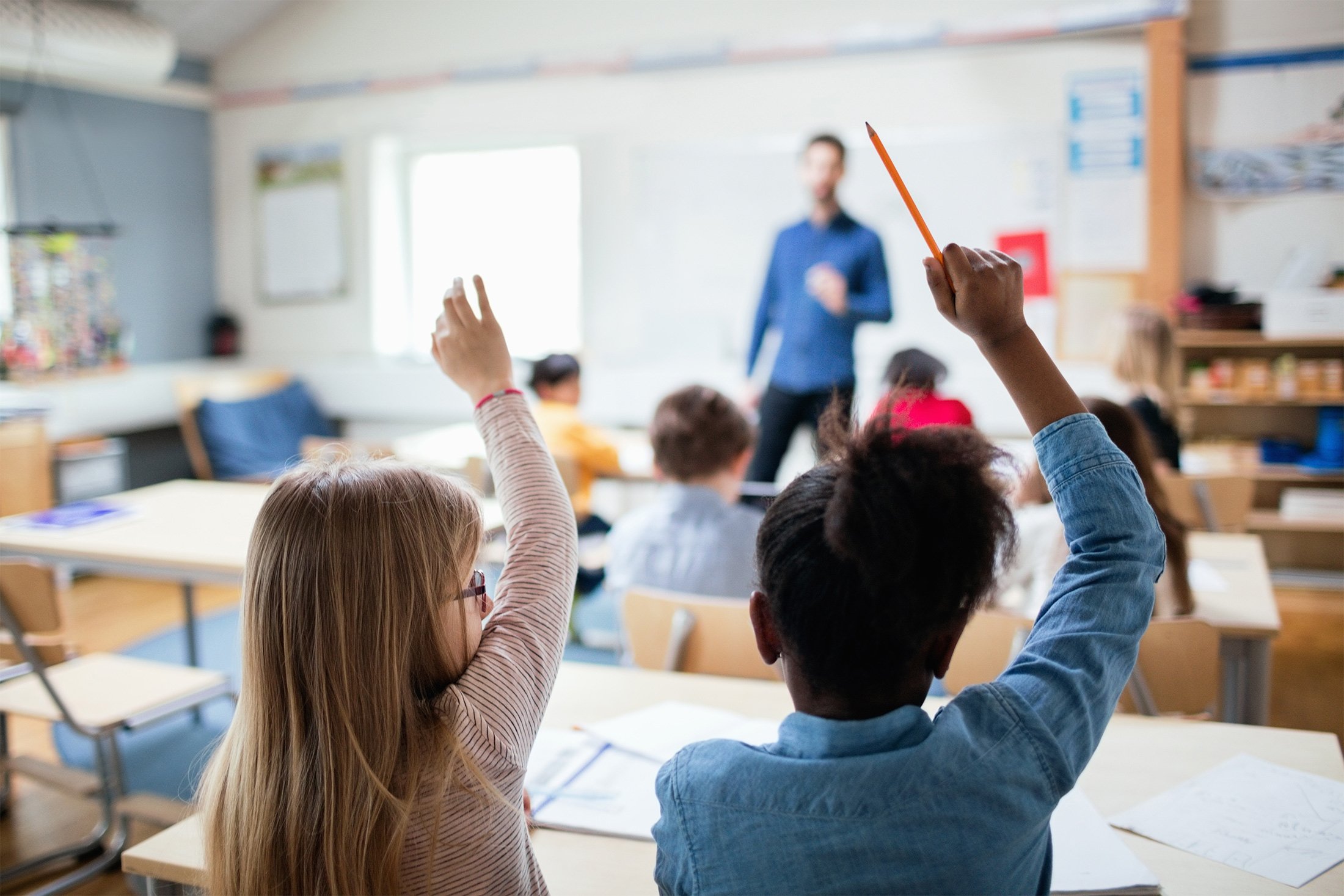Education experts have demonstrated through many studies that every learning theory is distinct and useful. Once you understand the approach your mind prefers for receiving information, you can start learning in a more advanced and effective manner. This is not exclusive to academic learning since the mind processes general knowledge and learning skills similarly. In this article, we'll help you identify what works for you and introduce you to many learning theories.
Theories of Effective Learning
Psychologists and education experts have developed several theories based on individual concepts for people. Nonetheless, the following four concepts are particularly pertinent to day-to-day learning:
1. Behaviorism
The behavioural learning theory, first proposed by John Watson, contends that interactions are the source of learning. The theory suggests that every event or piece of information elicits a particular response, which assists in the brain's ability to retain details. A piece of information you read somewhere won't stick in your mind if it doesn't elicit a reaction. This holds true in real-world situations as well. Without receiving feedback signals from your brain, you cannot learn from your experiences.
The environment also significantly influences this theory. Learning is consistent with the environment since the brain is empty at birth and eventually fills with knowledge from environmental sources. Therefore, one may not learn things similarly in a different environment. Put differently, learning capacity and outcomes vary depending on the environment.
The brain's preexisting knowledge justifies every behaviour. The interaction is directly tied to what the person has learned, regardless of how emotional it is. As a result, whatever you learn immediately impacts your conduct, and an individual's behaviour varies depending on their level of knowledge in general. Hence, by adjusting your frame of mind, you can use this theory to help control your anger, for example, if you're learning to control it.
2. Cognitive Theory
The cognitive learning theory was first presented by educational psychologists Jean Piaget and Edward Tolman. It is founded on the idea of memory. This theory makes sense when you consider how the human brain learns from memories, just like a computer store and processes data that is input into it. Essentially, it states that the brain receives information first, comprehends it, and then interacts with it. Thus, learning occurs prior to a response, much like in the case of a computer, whose outputs are dependent on stored data.
Furthermore, a person learns and gathers knowledge even without a reaction. A good memory is essential while learning a new language, for instance, as you will need to memorise the meanings of certain words. It, therefore, places responsibility on the learner, emphasising that the learner can become an active participant who comprehends and assimilates information even when they do not rely on a learning resource. If you have access to language materials, you can begin learning a new language without an instructor on any given day if you're interested.
3. Constructivism
Constructivist learning theory, developed by Lev Vygotsky, emphasises cognitive learning. According to this theory, every person has a distinct perception depending on the knowledge they acquired prior to a particular event. Your perspective is partly shaped by everything you have seen, experienced, or heard during your life. Every experience, according to Vygotsky, aids in learning in two ways: one during the actual occurrence and another when the learner applies prior knowledge to absorbing the information. According to constructivism, learning entails building on prior information to form a coherent mental framework. Learning becomes meaningful when connections are made between previously learned and updated knowledge.
This school of thought holds that learning is the process of understanding experiences; learning cannot occur without understanding the event. For instance, you will never be able to learn how to play the guitar if you do not understand how to use its strings. The theory uses this phenomenon to improve people's capacity for learning and proposes that to improve the educational process, learners must engage more in it. Constructivism promotes group projects and strongly emphasises problem-solving techniques, which sharpen cognitive skills and facilitate learning.
This theory also acknowledges that every person is unique and that this affects what they learn. If you're learning to draw, for example, every sketch you make will uniquely represent yourself. Hence, even with identical tools, two artists cannot create the same piece of art.

4. Experiential Learning
As the name suggests, the main focus of this theory of learning is experience-based learning. Although it resembles behaviourism, David Kolb, the scientist who established the theory of experiential learning, offered an alternative viewpoint.
This theory is actually a synthesis of behaviour, knowledge, perception, and experience that draws from all of the aforementioned theories. According to it, experience—which can include anything from actual events to writing or drawing—is the first step in the learning process. The brain's processing of the information will come next, likely ending in an external reaction. It eventually integrates into memory, at which point perception plays a crucial role.
Simple differences separate behavioural learning from experiential learning: behaviourism discusses how learning is influenced by behaviour outside of the mind and vice versa, whereas experimental learning concentrates on internal processes and the external manifestations of those processes.
According to this theory, if you're working in computing and want to learn new codes, you can do so best by using a visual medium. For example, write code patterns or watch a video to get a mental image you can learn from.
The Relationship Between Learning Styles and Learning Theories
Now that you are aware of the foundations of each learning theory, you must understand how each applies to the learning you do regularly.
Since these theories are derived from many learning styles, each individual actually has a unique learning style that directly aligns with some or all of the above-listed theories. There are seven fundamental learning styles:
1. Visual Style
Learners who belong to this style grasp concepts more effectively through visual aids.
2. Auditory Style
Learners who belong to this style absorb information from auditory sources.
3. Verbal Style
Learners who belong to this style favour articulating words in writing and speech.
4. Physical Style
Learners who belong to this style must use their sense of touch to understand information.
5. Logical Style
Logical individuals think systematically about what they're learning.
6. Social Style
Learning in groups is more effective for learners of this style.
7. Solitary Style
Learners who belong to this style prefer to work alone, not in groups.
Each of these learning styles is directly related to one of the four learning theories. For example, the logical learner is a vivid example of cognitive learning theories; therefore, if you're proficient in accounting tasks, you likely have good cognitive skills that help you organise information in your mind.
Public relations representatives use this theory and approach because they believe social learners learn best when collaborating and using their imaginations.
Learners who prefer the physical style interact with the information they learn in a physical way. The following is an example of behaviourism in action: a karate student cannot acquire a skill by memorisation unless they physically practice it. They find it impossible to retain the material in their heads without moving their hands or employing touch in some other way.
Regarding experiential learning, it's an essential technique for both visual and auditory learning styles because, even in the absence of a response, the learner's brain cells are activated by the visual or auditory information they receive.

Using Your Best Fit Learning Methods
If you don't apply learning styles that fit your learning preferences, you'll have trouble understanding what you're learning and feel pressured, which will undermine your IQ and productivity.
The question of whether there are right and wrong theories among the many theories of learning and how to apply them is not addressed in such a way. Since the brain is a very complex organ with individual variations in how it functions, there are individual differences in how information is absorbed. This is because the brain is divided into numerous regions carrying out distinct functions. For instance, the frontal lobe processes language, the temporal lobe processes social interactions, and the right hemisphere processes music and sounds. These brain regions don't all function at the same pace. For example, some people process information much faster than others, and in other scenarios, certain regions may function more quickly or dominantly. Each person has unique skills as well. Someone who is proficient in music may not be as proficient in logic.
Everybody learns differently since this has an impact on the learning process. Consequently, despite certain commonalities, educational psychologists have developed a wide range of theories and methods of learning in response to the fact that different people learn in different ways. Therefore, you need to know the learning theory and the method that suits you. Once you know the preferred method of your mind, you can use this knowledge to improve your learning capacity.
Do One's Learning Styles Change Over Time?
You may have been accustomed to learning using visual aids throughout your life, or perhaps you have an excellent memory. However, this doesn't guarantee that your learning style will remain the same when you start your professional life. Your learning style may need to adapt due to changing learning methods. For instance, singing in a band would be preferable to singing alone if you were a social learner in the past and found that teamwork inspired you greatly. However, if your preferences shift over time and you find that you are a better individual, you will find it difficult to continue using the same learning strategy. This is because your mind won't be able to practice effectively during group sessions, resulting in subpar band performances.
In fact, the brain changes over time; regions that were once strong may become weak and vice versa, and one lobe may dominate another that is used to control the brain. Thus, learning styles are not fixed forever and may change over time.
Ultimately, by using the right learning strategy and a few other pointers, you can greatly enhance your learning capacity. As a result, you'll see a significant increase in your daily productivity. Note that you are a wonderful and responsible person and that only you can guide yourself to the appropriate learning path. Therefore, if you want to pick up a new skill quickly, identify the learning style that works best for you, learn using it, and then study the corresponding learning theory to find out how your mind processes information. You can then become a quick learner in a matter of days.






Add comment